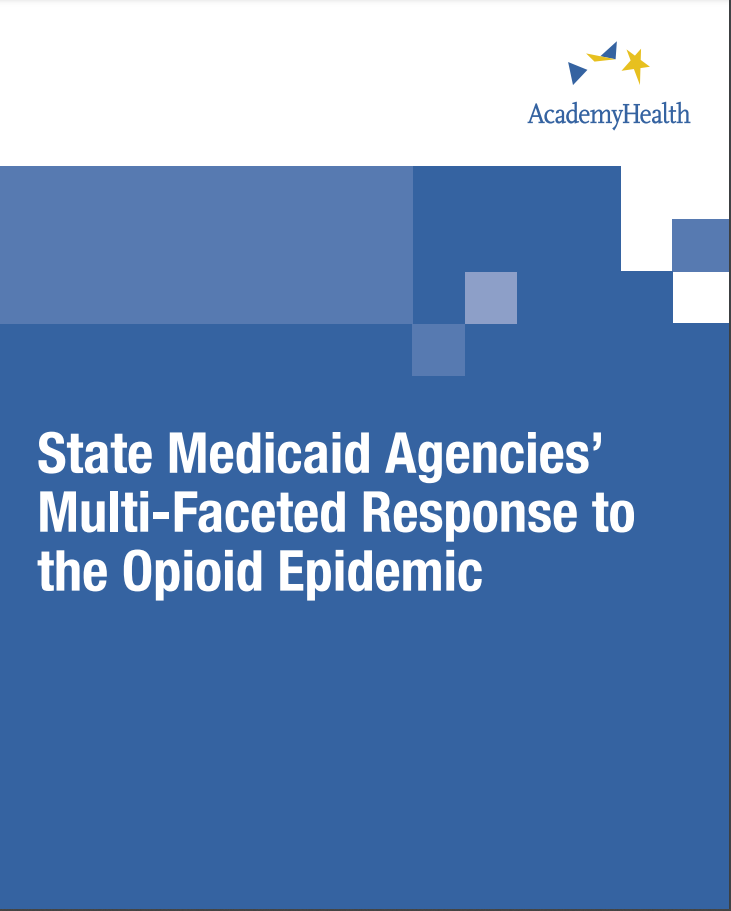
State Medicaid Agencies’ Multi-Faceted Response to the Opioid Epidemic
Report findings are relevant to state policymakers and health services researchers interested in identifying effective approaches to address the opioid crisis, and establishing metrics to advance policies in development, such as value-based purchasing for substance use disorder treatment.
Medicaid is the single most important payer for health care services related to the opioid epidemic. State Medicaid programs collectively covered an estimated 38 percent of nonelderly adults with opioid use disorder (OUD) in 2017, and 54 percent of those who received treatment for OUD. Thus, the OUD treatment policies set by Medicaid programs can shape how health care systems treat all individuals with OUD. Federal policies afford state Medicaid programs substantial flexibility as payers of substance use disorder treatment, both in terms of the services they cover and the utilization management policies they use to govern which patients receive care and how it is delivered. In response to the opioid epidemic, Medicaid programs have expanded coverage of SUD treatments, and reformed delivery and payment systems. Some of these policy changes, such as Section 1115 SUD Demonstration Waivers, have been well-documented although most have not yet been rigorously evaluated.
Authors observed substantial convergence in the policies and actions taken by states. All 9 states relaxed or eliminated utilization management policies, such as prior authorization of medications for opioid use disorder, that may be a barrier to access. Most states expanded SUD treatment coverage to align with the American Society of Addiction Medicine continuum of care. As collaborators, Medicaid programs participated in interagency efforts such as opioid task forces, including various levels of data-sharing between agencies. Interviewees discussed ongoing evaluative activities; however, OUD treatment quality measurement remains an area in need of development to support state policymakers.
Authors: Evan S. Cole, Ph.D. (Corresponding Author), University of Pittsburgh Graduate School of Public Health; Susan Kennedy, M.P.P., M.S.W., AcademyHealth; Amy Raslevich, M.B.A., M.P.P., University of Pittsburgh Graduate School of Public Health; Marguerite Burns, Ph.D., University of Wisconsin – Madison School of Medicine and Public Health; Sarah Clark, M.P.H., University of Michigan School of Medicine; Dushka Crane, Ph.D., LSSBB, The Ohio State University College of Medicine; Peter Cunningham, Ph.D., Virginia Commonwealth University School of Medicine; Marian Jarlenski, Ph.D., M.P.H., University of Pittsburgh Graduate School of Public Health; Paul Lanier, Ph.D., University of North Carolina School of Social Work; Alice Middleton, J.D., The Hilltop Institute, University of Maryland Baltimore County; Nathan Pauly, Ph.D., West Virginia University Office of Health Affairs; Logan Sheets, BA, AcademyHealth; Jeff Talbert, PhD, University of Kentucky College of Pharmacy; Julie M. Donohue, PhD, University of Pittsburgh Graduate School of Public Health.